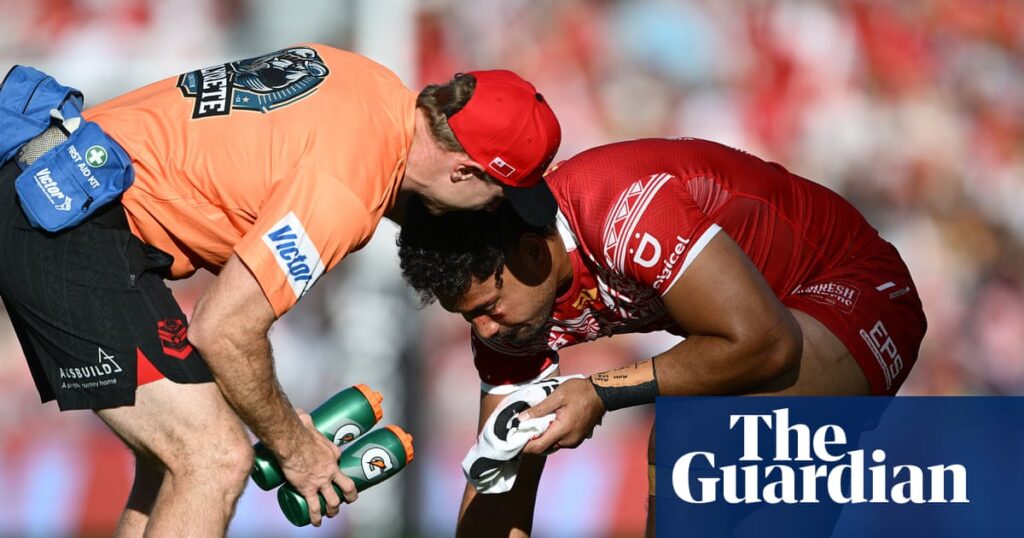Melbourne Storm backrower Eli Katoa has been ruled out for the entire 2026 season as he recovers at home in Victoria, having returned from a prolonged stay in Auckland following brain surgery.
The 25-year-old suffered three head injuries in one afternoon while playing for Tonga in a Pacific Championship match against New Zealand and suffered seizures while on the sideline, triggering emergency medical attention.
A procedure to relieve bleeding on the brain left Katoa in hospital and initially unable to travel back to Melbourne.
The Storm revealed on Tuesday that Katoa had finally returned home and was recovering, having also briefly visited a Melbourne hospital.
“Eli’s health and wellbeing remain our number one priority,” Storm chief executive Justin Rodski said.
“It is great to have him home safely and under the care of our club doctor and local specialists.
“He is improving each day and looking forward to continuing his rehabilitation from home.”
Rodski said there was no timeframe on Katoa’s recovery or possible return to training.
“In consultation with our doctor and neuro specialists, Eli will not return to training this pre-season and won’t be available for the 2026 season,” he said.
“He has a long road ahead in his recovery and his focus will be on returning to full health before considering any form of return to training.
“Eli is a much loved and respected member of our team and club. The Storm family will rally around him and support him through his recovery.”
after newsletter promotion
The NRL is finalising its investigation into the circumstances that led to Katoa’s surgery.
The powerful forward, named in the competition’s team of the year at the Dally M awards, appeared to suffer a concussion in the warm-up for the Pacific Championship match.
However, Katoa was allowed to play in the match, and suffered two more head impacts before coming off in the second half.
Katoa’s condition deteriorated quickly, and he required oxygen on the sideline and was removed from the field on a medicab.
The NRL has attempted to address concerns around head injuries in the sport in recent years, introducing crackdowns on high tackles and expanding the post-concussion stand down period.

